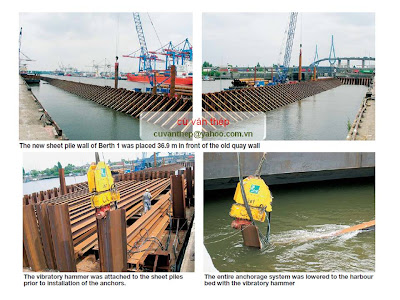HRC import prices in SE Asia dip on iron ore price plunge
Import prices of commercial quality 3-12mm thick hot rolled coil have fallen to $630-635/tonne CFR Vietnam. Some deals involving small volumes of SS400B HRC from China were concluded at these level last week, trading sources tell SBB. “There are also some buyers who are waiting for prices to fall to $620/t CFR or even lower to $600/t CFR,” a Vietnamese trader says. Chinese offers for this grade were heard at $640-650/t cfr a week ago. The slide in HRC prices is mainly attributed to the plunge in iron ore spot prices. Some stockists in Vietnam expect Chinese export prices to dip to $585-590/t fob, a local trader says.
Some market sources maintain that these low-priced offers are from speculators or stockists in China since offers from Chinese mills average $645-650/t CFR Vietnam. They say the fall in HRC prices is slowing down and that the market could improve by end-November. "The global economic outlook is better with the agreement to boost the euro-zone's bailout fund," a Vietnamese trader says. And the Chinese domestic market will improve after announced production cuts.
Offers of Korean-origin 2mm base SAE 1006 HRC have dropped to $680-685/t CFR Vietnam compared to $685-690/t CFR a week ago. Some Korean offers are heard at lower levels of $665-670/t CFR. “Nobody is buying, so they have to lower prices,” a regional trader says. A Taiwanese re-roller is heard, but not confirmed, to have offered SAE 1006 2mm HRC at $670/t CFR Vietnam–
Some 20,000 tonnes of Japanese-origin SAE 1006 2mm HRC for December shipment was sold to two customers at $690/t CFR two weeks ago.
SE Asian billet importers stay away in bearish market
Sentiment for imported billet continues to be weak in Southeast Asia as iron ore and scrap spot price plummet across the region. A booking of CIS Black Sea billet is heard booked last week at $630/t CFR Thailand. In Philippines, Russian-origin billet was offered at $630/t CFR Philippines and for Korean-origin billet at $640-645/t CFR, which is $5-10/t lower than a week ago.
Traders are generally believed to be making these low-priced offers. “Billet makers in Korea are stepping back and not making fresh offers,” a Korean trader tells SBB.
Vietnamese induction furnace mills are looking to export billet today at $620-630/t fob, local traders tell SBB. “The billet producers are using high-priced scrap so they face difficulties in lowering export prices,” trader in Ho Chi Minh City tells SBB. "Production costs are not competitive," another says. ""I don't think that there are any deals," he adds. An offer of induction furnace billet from Vietnam is heard at $645/t CFR Thailand. Freight within the region is estimated at $20-25/t.
Buying interest is very weak because of fears of offer prices falling further. Regional rebar markets are sluggish. As long as scrap prices continue to tumble, the billet import market in the region will continue to be under pressure, SBB is told.
Vina Kyoei gets approval for new billet plant, bar mill
The Vietnamese government has approved plans by Vina Kyoei Steel to build a meltshop, billet caster and rolling facilities to nearly double the mill’s capacity to about 900,000 tonnes/year when the expansion is completed around 2013.
The new meltshop will host a 90-tonne AC furnace and a billet caster capable of producing 130-150mmsquare billets to 6 metre lengths, and a 500,000 t/y rolling mill. Located at Vung Tau in southern Vietnam,the mill is currently operating at full capacity at 400,000 t/y producing rebars and wire rods from imported and domestically-sourced billets.
Vina Kyoei is owned 45% by Japanese mini-mill Kyoei Steel, 40% by Vietnam Steel Corp, and 9% and 6% respectively by Japanese traders Mitsui and Marubeni-Itochu Steel.
“We have been planning a meltshop at Vina Kyoei to supply billet ourselves to improve competitiveness,”Kyoei spokesman tells SBB. To date, Kyoei has been supplying about 5,000-6,000 t/m of billet from its Osaka plant to Vina Kyoei. “Exports to Vina Kyoei will decrease but we have customers in Southeast Asia and also in Japan, so we will have no problem with losing Vina Kyoei as a billet consumer,” he said.
Vina Kyoei has also been importing billet from other sources and procuring domestically-produced lower priced semis.
With the new facilities Vina Kyoei will start producing angles too, though the company has not decided production volume. Last month it began producing screw bars with technologies transferred from Kyoei.
Source: SBB













